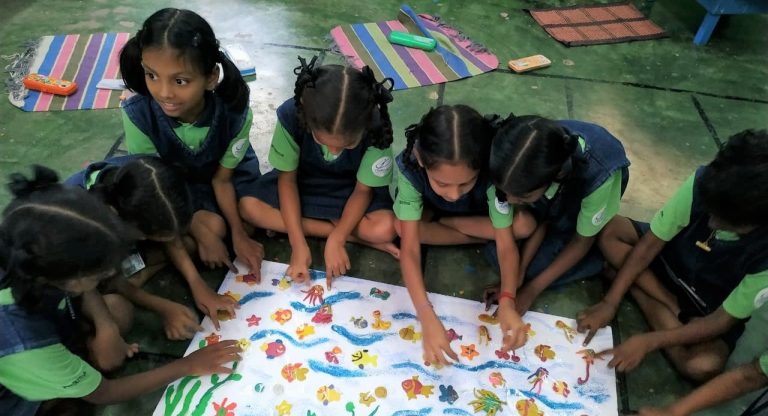
An educator’s quest for answers
If as educators, we are not perennially plagued with the question of what is the purpose of education, are we doing it right, will our students be ready for life, or can we do it better, then we are not serious educators at all? The eternal debate that educators face, is what should we prepare our students for, is it for life or a living?
It is even more difficult for those of us that are dealing with marginalised impoverished children because for them finding a living gives them life. So, how can teachers prepare their students to live a fulfilled life and yet not neglect their means to earn a living?
At Parikrma, we have always talked to our students about how to be dignified in poverty and practical about wealth. We try to teach them to develop inner strength to fight the adversities with some amount of pride and yet be humble and thankful for what they have. In today’s world, this is getting increasingly difficult because a school is looked at as just a preparatory ground for students to get into good universities and then move on to high valued jobs. The building of a moral compass is left to the parents to devise at home. In this process of segmentation and fragmentation, the real meaning of education is slowly getting warped.
We need to do what we teach our children to do, and that is, whatever the odds maybe, not to lose sight of the course. We think the mark of an educated mind:
- Is the ability to explore an idea, analyse it, without being compelled to follow it.
- Is being able to look at and evaluate different sets of values without necessarily adopting them.
- To develop the strength and skill to change one’s own life in a meaningful manner
- To recognise that we cannot enrich our minds without challenging our own assumptions & beliefs
- To understand that if we want to change how we see our problems, we have to change what we value, and how we measure failure and success.
- To have the strength to see that if what we value is incorrect and what we consider success and failure are poorly chosen, then everything based upon those values, thoughts, emotions, everyday feelings, will all be wrongly aligned and therefore needs to be changed.
- To be open-minded and give space to different ideas, ethos, without any judgment.
- Most importantly, an educated mind is humble and compassionate.
As educators, we must ask ourselves this, how much of the school time and our curriculum has been designed to promote these qualities? And, what can we as educators do something about it?
In his book, “Between Parent and Child”, the Israeli educational psychologist Haim Ginott writes about a letter that teachers would receive from their principal each year:
“I am a survivor of a concentration camp. My eyes saw what no person should witness: gas chambers built by learned engineers. Children poisoned by educated physicians. Infants killed by trained nurses. Women and babies shot by high school and college graduates. So, I am suspicious of education.
My request is this: Help your children become human. Your efforts must never produce learned monsters, skilled psychopaths or educated Eichmanns. Reading, writing, and arithmetic are important only if they serve to make our children more human.”
As educators, we must learn from history and see a future that is more informed and evolved.
